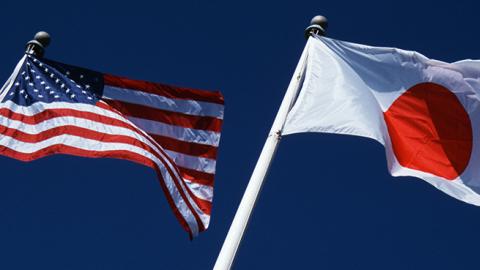太平洋のパートナー:アメリカと日本の特別な関係の構築
View Full Report in PDF Format
p(firstLetter). In a speech in Fulton, Missouri on March 6, 1946, Winston Churchill coined one of the most famous phrases in the history of foreign policy.
“Neither the sure prevention of war, nor the continuous rise of world organization will be gained without what I have called the fraternal association of the English-speaking peoples. This means a special relationship between the British Commonwealth and Empire and the United States.”
The historical record shows this was not Churchill’s first mention of the term “special relationship.” It surfaces in his correspondence as early as 1943. But the Fulton speech was the first public acknowledgment of a bilateral strategic alliance that would persist for the next seventy years—an alliance, one can forcefully argue, that won both World Wars I and II, and then kept the peace in Europe for four decades during the Cold War. By any measure that is an impressive, nearly seventy-year record.
Yet Churchill’s use of the term was more than simply descriptive of the successful wartime alliance between the UK and US, which led to Germany’s defeat and which Churchill foresaw would be needed again to confront Soviet aggression in the postwar period. (The Fulton speech also coined another phrase of great significance for the future: the “iron curtain” that Churchill portrayed as having descended upon Eastern Europe thanks to Soviet occupation.) Churchill’s use of the term was also clearly prescriptive. The true purpose of his speech, given in the aftermath of World War II to an overwhelmingly American audience, was to lay out an ambitious agenda for both countries. This agenda would keep peace while constraining the twin threats the former British prime minister saw looming on the horizon: war and tyranny.
“If the population of the English-speaking Commonwealths,” Churchill emphasized, “be added to that of the United States, with all that such co-operation implies in the air, on the sea, all over the globe and in science and in industry, and in moral force, there will be no quivering, precarious balance of power to offer its temptation to ambition or adventure.”














